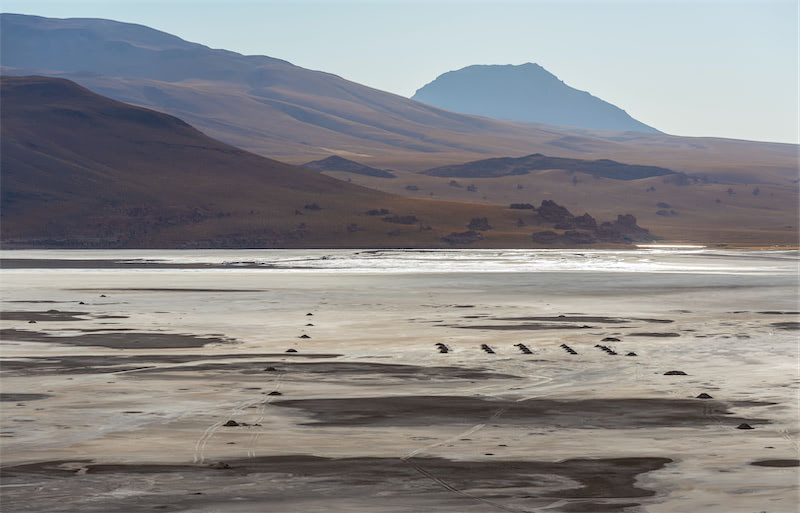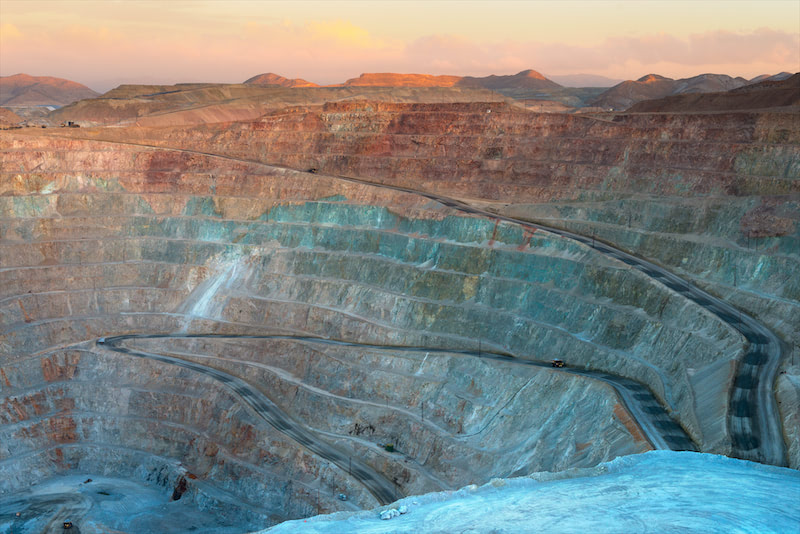As of 00:00 on September 7, all media at home and abroad had confirmed that Guinean President Conde had been detained and placed under house arrest by coup officers.
It is very rare for the United States to stand with China, Russia and even the United Nations to condemn the coup in Guinea.
The leaders of two African groups also pushed for the release of Conde. The Economic Community of West African States threatened to impose sanctions on Guinea while the African Union called on its Peace and Security Council to meet urgently on the matter.
Global aluminium markets were rattled on Monday as uninformed people feared that Guinea's domestic mining industry, especially the bauxite industry, would be affected by a coup, with prices in London hitting a 10-year high and prices in China climbing to their highest level since 2006.
One point will focus on the impact of the coup on iron ore.
General situation of mineral resources in Guinea
Guinea is located in western Africa, bordered by C ô te d'Ivoire to the east, the Atlantic Ocean to the west, Liberia and Sierra Leone to the south, and Guinea-Bissau, Senegal and Mali to the north.
Guinea, known as a "geological miracle", is rich in mineral resources and is an important resource-based country in West Africa. The world-famous non-ferrous and black minerals in Guinea are bauxite and iron ore, respectively.
First of all, Guinea, known as the "kingdom of bauxite", is rich in reserves, widely distributed and easy to mine. According to information released by the US Geological Survey, Guinea has proven reserves of 40 billion tons, accounting for more than 1/3 of the world's proven reserves. Guinea exported about 60 million tons of bauxite in 2018, making it the world's third largest bauxite mining country (after China and Australia) and the world's largest bauxite exporter.
Secondly, the iron ore reserves and grade of Guinea are among the highest in the world, with large iron ore reserves, high grade and easy mining, including a considerable amount of rich iron ore with a grade as high as 56-72%. Simandou Iron Mine, the largest iron ore, is praised by the international mining industry as "the largest undeveloped reserves and the best quality iron ore in the world", with an average iron content of more than 60%.
China's Mining Trade and Investment in Guinea
It is worth mentioning that Chinese companies have made remarkable achievements in bauxite mining and iron ore mining rights in Guinea. We will focus on China's trade and investment in bauxite and iron ore in Guinea.
Bauxite trade and investment
According to the USGS, by 2020, the country's bauxite reserves were about 7.4 billion tons, accounting for 24.67 percent of the world's total reserves, and annual production was 82 million tons, accounting for more than 22 percent of the world's total production.
According to customs statistics, China imported about 5267 tons of bauxite from Guinea in 2020, an increase of 18.6 percent over the same period last year, and 35.4 million tons of bauxite from Guinea in the first seven months of 2021, an increase of 6.6 percent over the same period last year.
On June 5, 2019, the Ministry of Geology and Mineral Resources of Guinea signed an agreement with (Ashapula), an Indian company.
According to the agreement, Indian company (Ashapula) paid US $25 million for the Yomboy é li iron ore in Guinea. The Yomboy é li iron ore is located in la R é gion de Kindia) Freicaria province (la pr é fecture de Forc é cariah). The iron ore used to be owned by the Guinean Frekaria Mining Company (F é cariah Guin é e Mining),), which declared bankruptcy on October 28, 2014 because it was insolvent.
In addition to the acquisition of mining rights, according to the agreement, Ashapla is also required to invest in the reconstruction and expansion of the port of Konta, making the port of Konta a multi-purpose port, increasing the annual loading and unloading capacity of the port from 3 million tons to 10 million tons.
In the past ten years, the amount of iron ore imported by China from Guinea is almost negligible. In only three of the ten years, the quantity exceeded 100000 tons. Please note that this is the annual import volume! In 2020, the most year, only about 330000 tons were imported in a whole year.
From January to July 2021, China's iron ore imports from Guinea are also very much the same as before: on and off. The most January is only about 180000 tons, according to this trend, China's iron ore imports from Guinea in 2021 should exceed last year, breaking a new high! But with this amount, why are we worried about the impact of the coup?!
As far as iron ore rights are concerned, Chinese companies have acquired most of Simandou's mining rights. At present, the winning Alliance (SMB-Winning Consortium) in blocs 1 and 2 of northern Simandou holds 85 per cent of the shares, the Guinean government 15 per cent, Rio Tinto of southern blocs 3 and 4 45.05 per cent, Chinalco and Baowu 39.95 per cent and the Guinean government 15 per cent. Most people in the market are worried about the continuity of the mining right: whether the previous agreement with the Guinean government still counts after the coup?
If nothing else, let's just say Rio Tinto Group. Since Rio Tinto's subsidiary discovered Simandou iron ore and obtained the prospecting license in 1997, it has gone through several twists and turns. At first it got all four blocks, and then Vale was involved, as well as Israeli millionaires. Over the past 20 years, the Guinean government has changed many times, at least Rio Tinto has preserved the interests of two blocs. So, on a certain level, the Guinean government is still talking about "morality"!
Not to mention how much contribution our Chinese government has made to getting rid of hunger and poverty, infrastructure and economic development in Africa over the years and providing timely assistance to the people and governments of various African countries! If we look at the infrastructure construction of the Chinese government in Africa, we can see this. Will African people and governments let Chinese investment go down the drain?
The soldier of the coup is a discerning man!
At a time when market participants are nervous about the coup in Guinea, according to the latest report from Bloomberg on Sept. 7, the junta that seized power in Guinea said it planned to establish a unified government before the transition to civilian rule. urge mining companies to continue to operate and assure them that their existing agreements with the country will be respected.
"curfews in mining areas have been lifted to ensure continuity of production," coup leader Colonel Mamady Dumbuya (Colonel Mamady Doumbouya) said in a speech to members of the ousted government on Monday, with ports still open to exits and air links restored.
Dumbuya said on Sunday (Sept. 5) that Conde must be overthrown in order to address financial mismanagement and corruption in Guinea, the ousted leader who is safe and has been in touch with his doctors.
Conclusion
After all, the coup was an act of violence. Un Secretary General Antonio Guterres (Antonio Guterres) said on Twitter that he strongly condemned "any act of taking over the government by force".
Eric Humphrey-Eric Humphery-Smith, an African analyst at Verisk Maplecroft, a risk intelligence firm, says the coup upended a decade of stability in Guinea. "while many Guineans feel jubilant, there is no doubt that this is two steps backwards for the country's democracy and economy," Smith said.
The coup may also change the current political ecology in Africa. According to foreign media Africa Intelligence, although ECOWAS leaders have called for the unconditional release of Guinean President Conde (Alpha Cond é), the heads of state of organizations in the region have also agreed to hold a special summit by 9 September at the latest, during which West African presidents will have to discuss whether to impose sanctions, especially economic sanctions, on Guinea and coup leaders. But according to Africa Intelligence, ECOWAS does not want Comte to return to power.
Although Guinea's bauxite and iron ore are not affected by the coup for the time being, Guinea's economy will really get worse if there are economic sanctions imposed by local African organizations.




